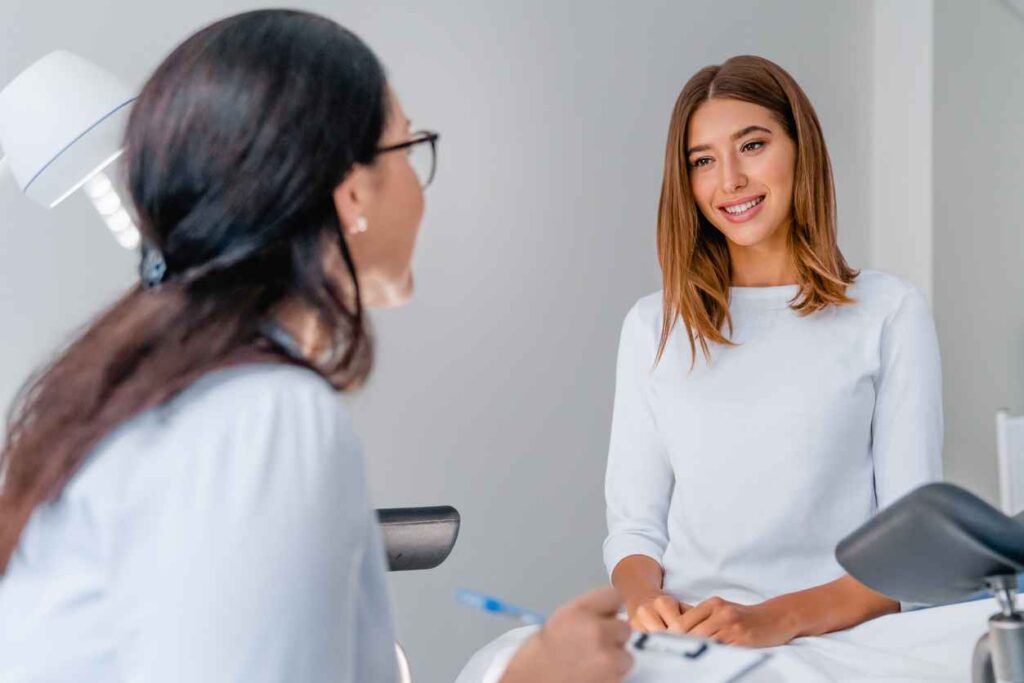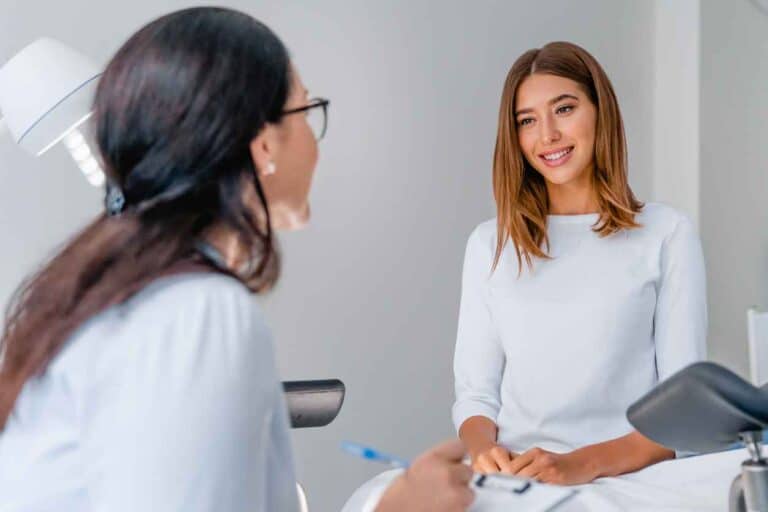Maintaining good health goes far beyond eating right and staying active. Regular medical checkups are essential for monitoring your well-being, catching potential health issues early, and ensuring a better quality of life. Women, in particular, have unique healthcare needs that require attention from various specialists, including doctors, dentists, and gynecologists. In this guide, we’ll delve into why these visits are so crucial and how they contribute to a healthier, longer life.

Why Regular Checkups Are Essential
Life is busy, and many women put their health on the back burner, prioritizing family, work, and other responsibilities. However, regular checkups are a vital investment in your health. These visits not only help in early detection of potential health issues but also provide an opportunity to discuss concerns, ask questions, and receive personalized advice.
Preventive care, which includes screenings, vaccinations, and counseling, is a cornerstone of good health. By identifying potential problems early, many conditions can be treated effectively, reducing complications and healthcare costs. Additionally, regular checkups build a relationship with your healthcare providers, ensuring that your care is tailored to your unique needs.
Doctor Checkups: The Foundation of General Health
Seeing your primary care physician (PCP) regularly is a cornerstone of overall health. These visits focus on preventive care, chronic disease management, and addressing any new symptoms or concerns.
What Happens During a Doctor’s Checkup?
Your primary care visit often includes a physical examination, a review of your medical history, and routine screenings based on your age and risk factors. Common tests might include blood pressure measurements, cholesterol screenings, and glucose tests to check for diabetes.
Your PCP will also discuss lifestyle habits such as diet, exercise, and mental health. These conversations can uncover early signs of conditions like heart disease or depression, making them invaluable in maintaining overall well-being.
Key Benefits of Regular Doctor Visits
- Early detection of chronic conditions like hypertension and diabetes.
- Monitoring your overall physical and mental health.
- Staying up to date with vaccinations like the flu shot or tetanus booster.
- Building a trusted relationship with a healthcare provider who knows your history.
Dental Checkups: Not Just About Your Smile
Oral health is a critical component of overall health, yet many women underestimate the importance of regular dental visits. Poor oral health has been linked to serious conditions like heart disease, diabetes, and complications during pregnancy.
What Happens During a Dental Checkup?
A routine dental visit typically includes professional cleaning to remove plaque and tartar, a thorough examination of your teeth and gums, and X-rays to detect issues that aren’t visible to the naked eye. Your dentist will also check for signs of oral cancer and gum disease, which can often go unnoticed until they become severe.
Key Benefits of Regular Dental Visits
- Prevention and early detection of cavities and gum disease.
- Maintenance of healthy teeth and gums for better overall health.
- Detection of oral cancer and other serious conditions.
- Professional guidance on proper brushing, flossing, and oral hygiene practices.
Gynecologist Visits: Caring for Women’s Unique Needs
Women’s health extends beyond general medical care, requiring specialized attention from a gynecologist. These visits are critical for monitoring reproductive health, managing hormonal changes, and addressing issues unique to women, such as pregnancy or menopause.
What Happens During a Gynecological Checkup?
A routine gynecological visit typically includes a pelvic exam, a Pap smear (to check for cervical cancer), and a breast exam. Depending on your age and health history, your gynecologist may recommend screenings for sexually transmitted infections (STIs) or a mammogram to check for breast cancer.
Gynecologists are also the go-to professionals for discussing birth control options, fertility concerns, or menopausal symptoms. They can provide expert advice tailored to your stage of life, ensuring your reproductive health is well cared for.
Key Benefits of Regular Gynecological Visits
- Early detection of cervical and breast cancer.
- Monitoring reproductive health, including menstrual irregularities or fertility issues.
- Guidance on family planning, pregnancy, and menopause.
- Prevention and treatment of STIs.
Table: Recommended Checkup Frequency for Women
| Type of Checkup | Frequency |
|---|---|
| General Doctor | Annually (or as recommended based on health risks) |
| Dental | Every 6 months |
| Gynecological (Pap Smear) | Every 3 years (or annually based on age/history) |
| Mammogram | Annually starting at age 40 (or earlier if needed) |
| Bone Density Screening | Every 2 years starting at age 65 (or earlier if needed) |
Tips for Getting the Most Out of Your Checkups
- Prepare Ahead of Time: Write down any symptoms or questions you have before your appointment to ensure you don’t forget anything.
- Be Honest: Share any concerns, even if they seem minor or embarrassing. Doctors and dentists are there to help, not judge.
- Keep Track of Your Health Records: Maintaining a personal health journal can help you and your doctors identify patterns or recurring issues.
- Ask About Preventive Screenings: Don’t wait for your doctor to bring up screenings—be proactive in discussing what’s appropriate for your age and risk factors.
- Stay Consistent: Regular visits build a foundation for better health. Stick to your scheduled appointments to maintain continuity of care.
The Ripple Effect of Regular Checkups
The benefits of routine checkups extend beyond physical health. When you prioritize your well-being, you’re more likely to feel energetic, confident, and prepared to tackle life’s challenges. Regular visits to healthcare providers can also lead to improved mental health by reducing anxiety about undetected illnesses and offering a support system for managing stress or emotional concerns.
These visits also set a positive example for younger family members, teaching the importance of preventive care and fostering a culture of health within your family.
FAQs About Regular Checkups for Women
Why should I see a doctor if I feel healthy?
Preventive care is about catching potential issues before they become serious. Many conditions, like high blood pressure or early-stage cancer, don’t have noticeable symptoms.
How do I know which screenings I need?
Your doctor will recommend screenings based on your age, family history, and lifestyle factors. Common ones include cholesterol tests, mammograms, and bone density screenings.
What should I bring to my appointments?
Bring a list of current medications, your medical history, and any questions or symptoms you’d like to discuss.
Are dental checkups really necessary if I brush and floss daily?
Yes! Professional cleanings remove tartar that brushing and flossing can’t, and regular exams detect issues like cavities or gum disease early.
When should I start seeing a gynecologist?
The American College of Obstetricians and Gynecologists recommends girls have their first visit between ages 13 and 15 or when they become sexually active.
How do I prepare for a gynecological exam?
Avoid douching or using vaginal products before the appointment. Wear comfortable clothing and jot down any symptoms or questions you’d like to discuss.
Can I skip a checkup if I feel fine?
Even if you feel healthy, regular checkups can catch hidden conditions early and help you stay on top of your overall health.
Authentic US Sources for More Information
- Centers for Disease Control and Prevention (CDC): www.cdc.gov
- American College of Obstetricians and Gynecologists (ACOG): www.acog.org
- Mayo Clinic: www.mayoclinic.org
- American Dental Association (ADA): www.ada.org
- National Institutes of Health (NIH): www.nih.gov
Taking care of yourself is not selfish, it’s necessary. By prioritizing regular checkups, you’re investing in a healthier, happier future. So, make that appointment and take the first step toward a lifetime of well-being.


